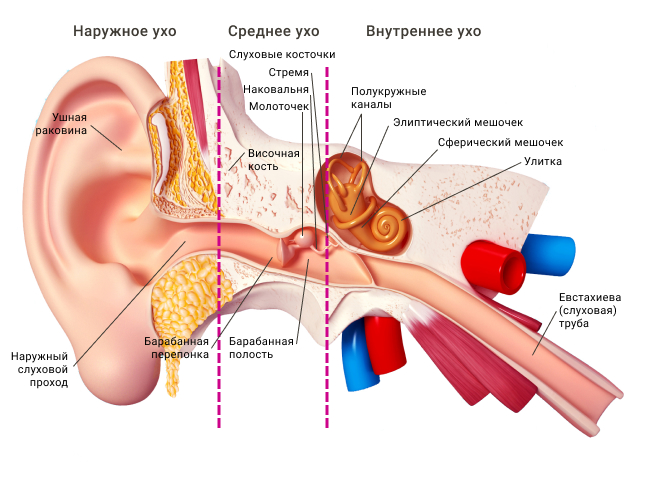
In 2000, a single from Finnish band Bomfunk MC's blew up the radio and dance floors. We are sure you remember him - Freestyler.
All the youth sang it. But in Russian-speaking countries no one sang correctly. Nobody at all, and we know what we're talking about. At best, it was "F-f-freestyle rakamakafon", and the rest of the song turned into a set of incomprehensible sounds.
As it turned out, this is quite normal. And for such mishearing people they even came up with their own name - mondegrin. What an incomprehensible monster is and is it possible to learn to understand words by ear without unnecessary fantasies, read the article.
Mondegrin and darwaldaya: what the hell is this?
Since we have already remembered the song, let's work on its example. For starters, here's the original:
Even for a person with a high level of English, it is quite difficult to make out the entire text of the song.
- Firstly, hip-hop rhythms knock out the intonation of speech, which makes it harder to distinguish between sentences. And in general, even the beginning and end of words is quite difficult to catch. If the brain does not have time to understand at least something, then the next couple of lines turn into an incoherent set of sounds.
- Secondly, although the guys spit well in English, the Scandinavian accent is still felt. And with quick speech, it manifests itself even more. A listener who is not used to such an accent quickly loses the essence of speech.
The result is something like this:
And that's okay. The brain does not have time to recognize the text, so some strange words and phrases are heard that are vaguely similar to the original. Due to the fact that the brain does not understand the meaning of words, it tries to extract at least some associations from a meaningless sequence of sounds.
This is mondegrin - an erroneous interpretation of a phrase or word, which gives rise to new meanings in them.
By the way, we recommend reading the text of the track . It's pretty good and there are even references to other popular artists.
Now about mondegrin. The very name of the phenomenon is not taken from my head. It was invented by the writer Sylvia Wright. In 1954, she wrote an essay for Harper's Magazine entitled "The death of lady Mondegreen."

In it, she described a story when a mother read to her little daughter the old ballad "The Bonnie Earl O 'Moray", and she misheard one line.
Ye Highlands and ye Lowlands,And she always wondered who this Lady Mondegrin was. As it turned out, she just misheard the last line. Actually it was "... and layd him on the green" (and laid him on the grass).
Oh, where hae ye been?
They hae slain the Earl o 'Moray,
And Lady Mondegreen.
The brain simply did not understand the true phrase and interpreted the sounds differently.
In Russian, this phenomenon could be called "darvaldaya". The only drawback is that it sounds too complicated, and it doesn't work well with pairing. But this "word" has its own story.
Fyodor Glinka in 1825 wrote the poem "The Dream of a Russian in a Foreign Land", which later turned into a classic romance "Troika".
The first verse contains the phrase "And the bell, gift from Valdai." Valdai is a city in the modern Novgorod region. Fyodor Dostoevsky in his diary spoke about this phrase with humor and irony:
Darvaldaya. I propose to take it for a new verb. It is impossible to imagine anything more ridiculous than the city of Valdai, giving bells. In addition, this verb is known to all of Russia, for three generations, because everyone knows the three daring, it stayed not only between the cultural, but even penetrated into the elemental layers of Russia <...> But everyone, in all layers, sang the gift of Valdai not as the gift of Valdai , but as darvaldaya, that is, in the form of a verb depicting something wobbling and ringing; you can talk about all the dangling and ringing or knocking - he darwals. You can even make the noun darvaldai.The word turned out to be funny, but ponderous, so it did not become a term. But mondegrin "went" to the people and now officially designates such mishearing.
Why We Hear Not What We Need: How It Works
First, let's look at exactly how the brain turns random sounds into intelligible images.
First comes the physiological part. In the inner ear there are special receptors that “pick up” a certain frequency of sound. Gradually, the sound, passing through the labyrinths of the cochlea and ear canals, "decomposes" into components.

In short, there are thousands of receptors in each ear that respond to different tonality of sound. First, waves with a frequency of 30 Hz are "caught", then 35 Hz, then 40 Hz, and so it gradually reaches about 20,000 Hz. It is clear that all this happens in a split second, but the brain receives an expanded sound map, from which it interprets what kind of noise the person heard, where he comes from and what it means.
If the brain identifies sound as human speech, then Wernicke's center, a small area of the brain responsible for understanding speech, turns on. When the frequency-amplitude analysis is performed well, the recognition goes without problems - the brain easily and simply interprets sounds into words and images. But a small bug can happen here.
Sometimes the brain cannot interpret a series of sounds with 100% probability. And then the mechanism of associations turns on. Based on the context of the previous phrases, the brain tries to determine the most likely meaning of the word.
The mind does not like ambiguities and tries to classify any information it receives. Therefore, sometimes, even in a meaningless set of sounds, he tries to find something understandable. By the way, this effect also works visually - the so-called pareidolia .
The mechanism works great when learning foreign languages. For example, when a person watches a movie in English and finds an unknown word, in most cases he can roughly guess what it means. If the context is enough, then it is successful, if not, then the word remains a set of indistinct sounds.But sometimes the brain makes mistakes in interpretation and “understands” something completely different from what was in the original phrase. Or he is trying to isolate at least some familiar patterns from a set of sounds. And the more interference, the greater the chance of hearing loss.
Songs with ragged rhythms and not very well articulated lyrics are just the top method for giving birth to mondegrins.
What to do to keep Lady Mondegrin from dying
It is deliberately impossible to avoid mishearing. Because it is a perception bug. Unfortunately, it cannot be patched.
The reason lies in the hardware. That is, in the communication of the "pickup" in the ear and the "interpreter" in the brain. You cannot consciously influence this. Neither the knowledge of the language itself, nor the "hearing" of the speech in general in any way remove the possibility of deafness.
But you can help your brain fix every particular bug. If, for example, you are listening to a song and hear something completely wild, then find the correct text and try to read or sing it. Then the brain will "perceive" the correct option and stop hearing the incomprehensible game.
They did it on purpose with Freestyler. When people realize that "rock the microphone" is in the text, then the mysterious "rakamakafo" disappears and does not appear again.So do not be lazy to look at the text if you heard something wrong. And in the dialogue, it will not be superfluous to ask again or ask to repeat in other words. Because Mondegrin does not sleep, but is always alert.
And so absolutely in all mishearing. If you tell the brain the correct option, it takes it as a basis and builds a chain of associations, according to which the order of sounds of a certain frequency means a particular word or phrase.
Bonus: rapid test for mondegrins
We have prepared for you a small comic test on excerpts from songs in which mondegrines are heard more often than others. It will show you how badly your brain is bugging if the meaning of what you hear is not entirely obvious.
1. Ace of Base - "All that she wants"
What do you hear in the first four syllables?
Many Russian speakers claim that it is a "vegetable carrier".
But it was too easy because the correct answer is in the title of the song.
Correct answer:
«All that she wants» (, ).
2. Second level. Nirvana - "Smells like teen spirit"
Even native speakers often hear "Here we are now, in containers" (We are already here, in containers). Sounds creepy, doesn't it? If you hear the same, then hello mondegrin.
Correct answer:
«Here we are now, entertain us» ( , ).
3. Add some Taylor Swift - Blank Space
Here native speakers make mistakes even more often than students who learn English as a second. Because every second person hears: "All the lonely Starbucks lovers" (All lonely Starbucks lovers). How are you?
Correct answer:
«Got a long list of ex-lovers» ( ).
4. Now it's a little more complicated. Jimi Hendrix - "Purple Haze"
You have no idea how many people hear "Excuse me while I kiss this guy" (Forgive me when I kiss this guy). But no, this is clearly not about Jimmy.
Correct answer:
«Excuse me while I kiss the sky» ( , ).
5. And even harder, the classic: Abba - "Dancing Queen"
The last one for today and one of our favorite mondegrins. It seems to many that the queen of dance is beaten. "See that girl, watch that scene, kicking the dancing queen" (Look at this girl, watch the action, beat the queen of the dance floor).
Some, even when they find out the correct option, still continue to hear just that. Apparently, there are simply more associations for such a phrase than for the original.
Correct answer:
«See that girl, watch that scene, diggin’ the dancing queen» ( , , ).
***
Write in the comments if all the excerpts from the songs were understood correctly. Or is mondegrin about you too? We're damn interesting.
Online school EnglishDom.com - we inspire to learn English through technology and human care

Only for Habr readers, the first lesson with a teacher on Skype is free ! And when you buy classes, you will receive up to 3 lessons for free!
Get a full month of ED Words premium subscription as a gift .
Enter the promotional code mondegreen on this page or directly in the ED Words app . The promo code is valid until 11/24/2021.
Our products:
- Learn English words in the ED Words mobile app
- Learn English from A to Z on the ED Courses mobile app
- Install the extension for Google Chrome, translate English words on the Internet and add them to study in the Ed Words app
- Learn English in a playful way in the online simulator
- Strengthen your speaking skills and find friends in conversation clubs
- YouTube- EnglishDom